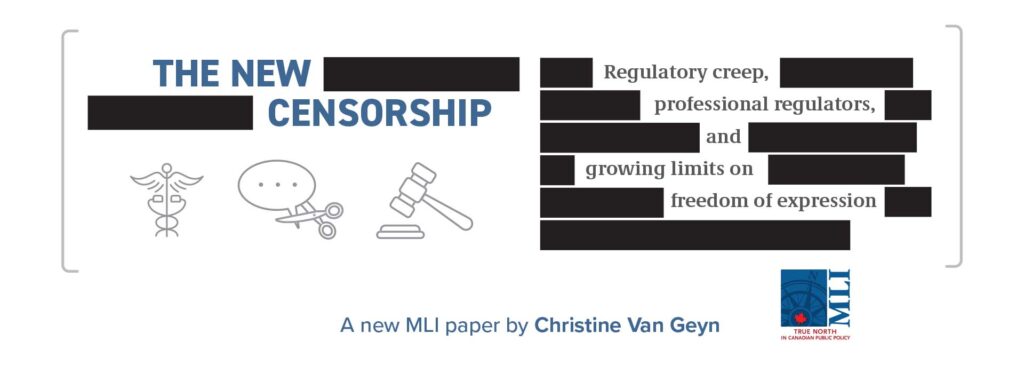This article originally appeared in the Western Standard.
By Collin May, December 9, 2024
In our age of censorious social media, professional regulators are especially susceptible to cancel culture and restrictions on free speech.
To maintain their elite status in society, they feel they must not only maintain professional practices and standards but also silence allegedly offensive members who “bring the profession into disrepute.”
Reputation of the profession is vaguely defined and adjudicated, with a tenuous connection to professional competence, and is poor grounds for discipline and ripe for abuse by ideologically captured regulators.
The Alberta government is among the first to recognize this with its recently launched review of professional bodies.
But the heart of the issue lies with the professional members themselves, whom sociologist Musa al-Gharbi has called the symbolic capitalist class.
According to al-Gharbi, symbolic capitalists are largely the professional managerial class who use symbols of status, prestige and recognition to advance their position in society. In his new book, We Have Never Been Woke, al-Gharbi says they engage in luxury beliefs such as “social justice” and “equity” to prove their professional class credentials.
In other words, this generally white elite uses trendy moral concepts as indicators of its social superiority while appropriating identities of marginalized communities it purports to help.
Unfortunately, as al-Gharbi’s book proves, the impact of symbolic capitalists is, at best, merely performative and, at worst, harmful to the working classes and marginalized communities.
It is not surprising that professional regulators target non-conforming professionals.
While it is commonly believed and stated that the purpose of professional regulators is to set and enforce standards for the protection of the public, a second purpose is routinely recognized by courts and regulatory bodies: preserving the integrity of the profession. And when a non-conforming professional is deemed to have breached this elite norm, they are accused of having “brought the profession into disrepute.”
This allegation is now deployed in an age of over-reach to silence professionals. The concern is that this allegedly unimpeachable element of professional self-governance not only silences political views, but also statements by professionals that contribute to the public good.
This was the case in the ordeal of registered nurse Carolyn Brost Strom after she publicly criticized her dying grandfather’s palliative care. Nurses at the facility took offence on behalf of the profession and complained to their provincial regulator, which ruled for the “offended” and issued Strom a reprimand, ordered her to write reflective essays on her behaviour, and fined her $26,000.
After numerous appeals, the Saskatchewan Court of Appeal overturned the disciplinary decision. In its unanimous ruling, which was celebrated by the national nurses federation, the court explicitly stated that Strom was, by exercising her right to expression as a professional, advocating not only for her grandfather but for the public good.
In fact, the courts have routinely confirmed that the public benefit and truth-seeking are why the right to free expression is so important even while they often show unwarranted deference to professional regulators, as noted by Christine Van Geyn in her report for the Macdonald-Laurier Institute.
Too often, professionals satisfy themselves with the view that preserving the integrity (i.e. the power) of their profession is a public service. And too often that justification is used against non-conforming professionals or even those who are simply political targets.
As Musa al-Gharbi has demonstrated in his research, it would be advisable if we professionals were a little less prickly about our alleged social importance as a profession and put more emphasis on serving the public through the good our profession provides.
For their part, the Law Society of Alberta and the College of Physicians and Surgeons of Alberta have said they welcome the chance to participate in the Alberta government’s review.
It would be equally advisable for Canadian politicians to consider that reforming professional regulation in collaboration with regulators may be worth pursuing.
A contributor to the Macdonald-Laurier Institute, Collin May is a lawyer in Calgary, former chief of the Alberta Human Rights Commission. He was appointed an adjunct lecturer in community health sciences at the University of Calgary for his work on harm caused by unfair or inappropriate complaints processes related to professional regulators.







